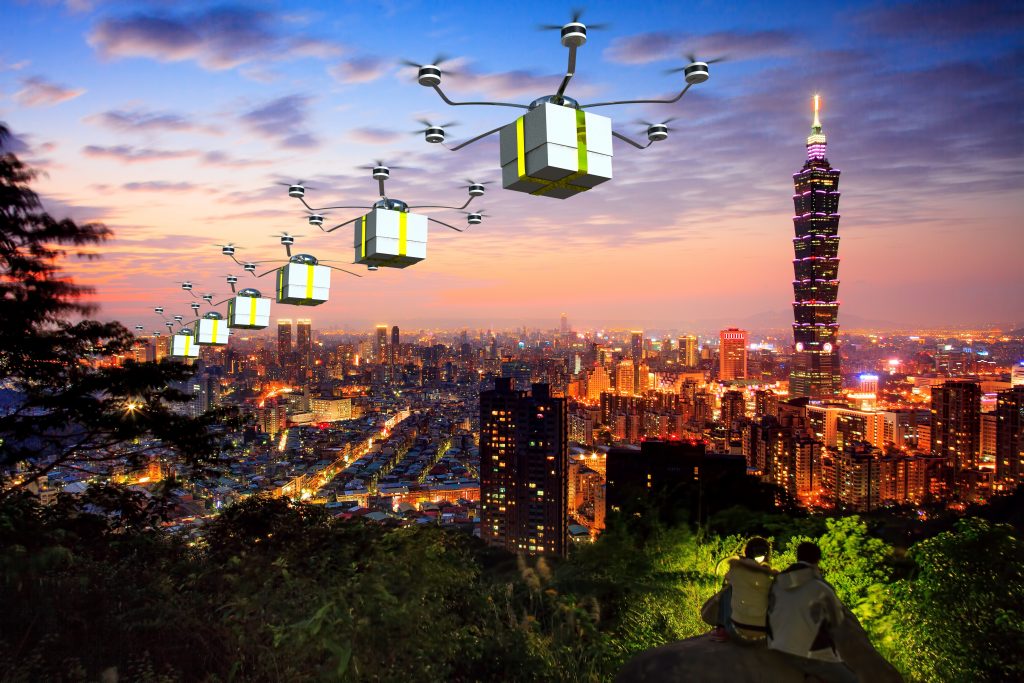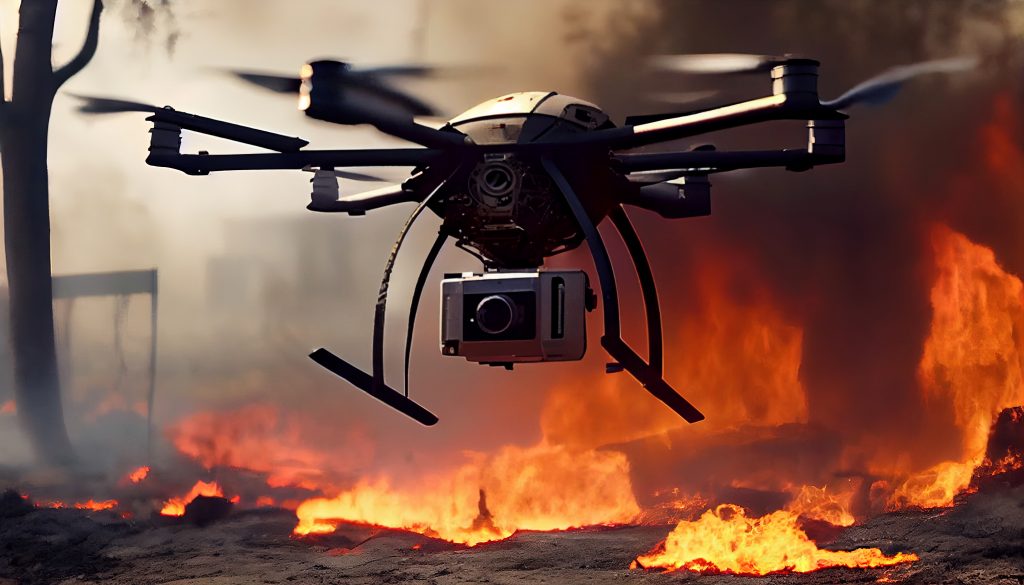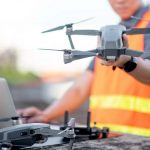Drones are useful for every stage of construction projects. Management teams have embraced the technology, leading to more productivity. It is easy to envision a future where drones have higher payloads, and the benefits that ability would bring to construction industry. Manufacturers around the world are looking to provide solutions to the construction industry, because the sector has seen the most growth of drone usage, seeing up to 300% growth. Drones have already made major inroads into the construction industry for various uses, such as surveying and videography. The future has just begun for drones in construction, they are too capable to ignore.
Drones are Useful in Every Stage
Drone technology is capable of providing engineers with the tools they need to make accurate assessments about the land. The topographic maps provided by drones produce more accurate renderings for decision-makers, than surveyors would be able to provide on the ground. Operators are capable of mapping large areas, as a result, drone use is catching on like fire with larger project managers. Complex ventures are more likely to stay on schedule because of the planning that occurs before crews break dirt.
Drones for construction provide real-time information about sites, so owners can stay appraised of progress. Everyone from the engineers to the managers will be more capable of making decisions about project execution.
Rainfall and the resulting erosion always has some impact on the terrain, the resulting irregularities in the land might make for a problem down the road if not accurately planned for in the design. The 3D mapping technology provided by drones is much more accurate, capable of stopping these issues before they become problems.
It is better to inspect hard to reach and dangerous areas with a drone, than to send a person into these situations. The drones can detect any cracks in the foundation. Drones can be especially useful in areas that are prone to sinkholes. The more integrated into construction drones become the safer the industry will be.
The future will determine some interesting questions about how mainstream drones will become in the industry. Will drones increasingly replace workers, as managers are forced to meet more rigorous timelines. Many builders want the fastest building at the cheapest cost, drones simply provide the tools to surpass increasing demands. The more work drones are capable of achieving is undeniable, decision-makers are taking note. Budgeting for drones is expanding across the industry.
Flying 3D Printers
Can flying 3D printers become a viable alternative for the construction industry? Maybe, something like this could find its way into the marketplace, either way, it is innovative thinking like this that will lead to a solution for sustainable building technologies. Swarms of construction drones printing out concrete might be useful in doing repairs to structures.
Companies want automation, the simpler and more capable operating systems become, the more technology will infiltrate the commercial space. Drone technology is useful across many industries, the growth of drone usage in the construction industry has been staggering.
Building designs themselves are beginning to change, so that drones either have access for deliveries, or homeowners can access their flying cars. Airports are undergoing design changes to integrate these new forms of travel.
Construction drones reduce the carbon footprint needed to complete building projects, by replacing the need for less efficient heavy machinery. The impact to the surrounding environment is less and the projects become more sustainable. Project managers can make determinations without as many site visits as previously required.





